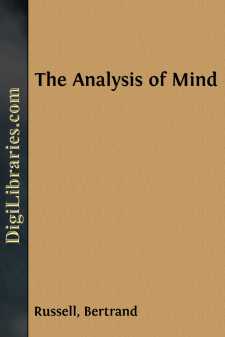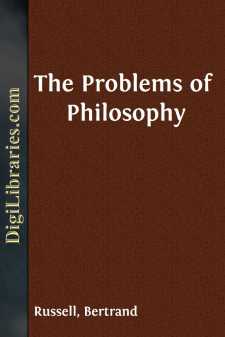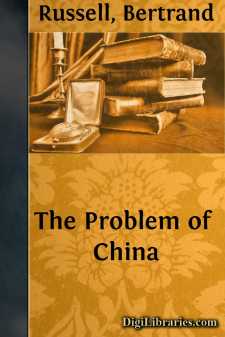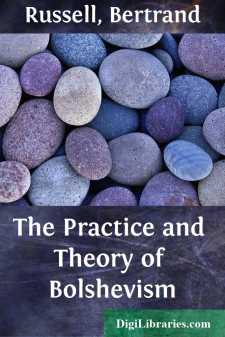Categories
- Antiques & Collectibles 13
- Architecture 36
- Art 48
- Bibles 22
- Biography & Autobiography 813
- Body, Mind & Spirit 142
- Business & Economics 28
- Children's Books 14
- Children's Fiction 11
- Computers 4
- Cooking 94
- Crafts & Hobbies 4
- Drama 346
- Education 46
- Family & Relationships 57
- Fiction 11829
- Games 19
- Gardening 17
- Health & Fitness 34
- History 1377
- House & Home 1
- Humor 147
- Juvenile Fiction 1873
- Juvenile Nonfiction 202
- Language Arts & Disciplines 88
- Law 16
- Literary Collections 686
- Literary Criticism 179
- Mathematics 13
- Medical 41
- Music 40
- Nature 179
- Non-Classifiable 1768
- Performing Arts 7
- Periodicals 1453
- Philosophy 64
- Photography 2
- Poetry 896
- Political Science 203
- Psychology 42
- Reference 154
- Religion 513
- Science 126
- Self-Help 84
- Social Science 81
- Sports & Recreation 34
- Study Aids 3
- Technology & Engineering 59
- Transportation 23
- Travel 463
- True Crime 29
Bertrand Russell
Bertrand Russell (1872-1970) was a renowned British philosopher, logician, and social critic, whose work has had a profound influence on the development of analytic philosophy and logic. He co-authored "Principia Mathematica" with Alfred North Whitehead, a seminal work in mathematical logic. Russell was also an ardent advocate for social reform, pacifism, and intellectual freedom, and won the Nobel Prize in Literature in 1950 for his varied and significant writings championing humanitarian ideals and freedom of thought.
Author's Books:
Sort by:
by:
Bertrand Russell
MUIRHEAD LIBRARY OF PHILOSOPHY An admirable statement of the aims of the Library of Philosophy was provided by the first editor, the late Professor J. H. Muirhead, in his description of the original programme printed in Erdmann's History of Philosophy under the date 1890. This was slightly modified in subsequent volumes to take the form of the following statement: "The Muirhead Library of...
more...
by:
Bertrand Russell
Chapter I: Political Ideals In dark days, men need a clear faith and a well-grounded hope; and as the outcome of these, the calm courage which takes no account of hardships by the way. The times through which we are passing have afforded to many of us a confirmation of our faith. We see that the things we had thought evil are really evil, and we know more definitely than we ever did before the...
more...
by:
Bertrand Russell
CHAPTER I. APPEARANCE AND REALITY Is there any knowledge in the world which is so certain that no reasonable man could doubt it? This question, which at first sight might not seem difficult, is really one of the most difficult that can be asked. When we have realized the obstacles in the way of a straightforward and confident answer, we shall be well launched on the study of philosophy—for philosophy...
more...
by:
Bertrand Russell
MYSTICISM AND LOGIC Metaphysics, or the attempt to conceive the world as a whole by means of thought, has been developed, from the first, by the union and conflict of two very different human impulses, the one urging men towards mysticism, the other urging them towards science. Some men have achieved greatness through one of these impulses alone, others through the other alone: in Hume, for example,...
more...
by:
Bertrand Russell
CHAPTER I QUESTIONS A European lately arrived in China, if he is of a receptive and reflective disposition, finds himself confronted with a number of very puzzling questions, for many of which the problems of Western Europe will not have prepared him. Russian problems, it is true, have important affinities with those of China, but they have also important differences; moreover they are decidedly less...
more...
by:
Bertrand Russell
I To understand Bolshevism it is not sufficient to know facts; it is necessary also to enter with sympathy or imagination into a new spirit. The chief thing that the Bolsheviks have done is to create a hope, or at any rate to make strong and widespread a hope which was formerly confined to a few. This aspect of the movement is as easy to grasp at a distance as it is in Russia—perhaps even easier,...
more...







